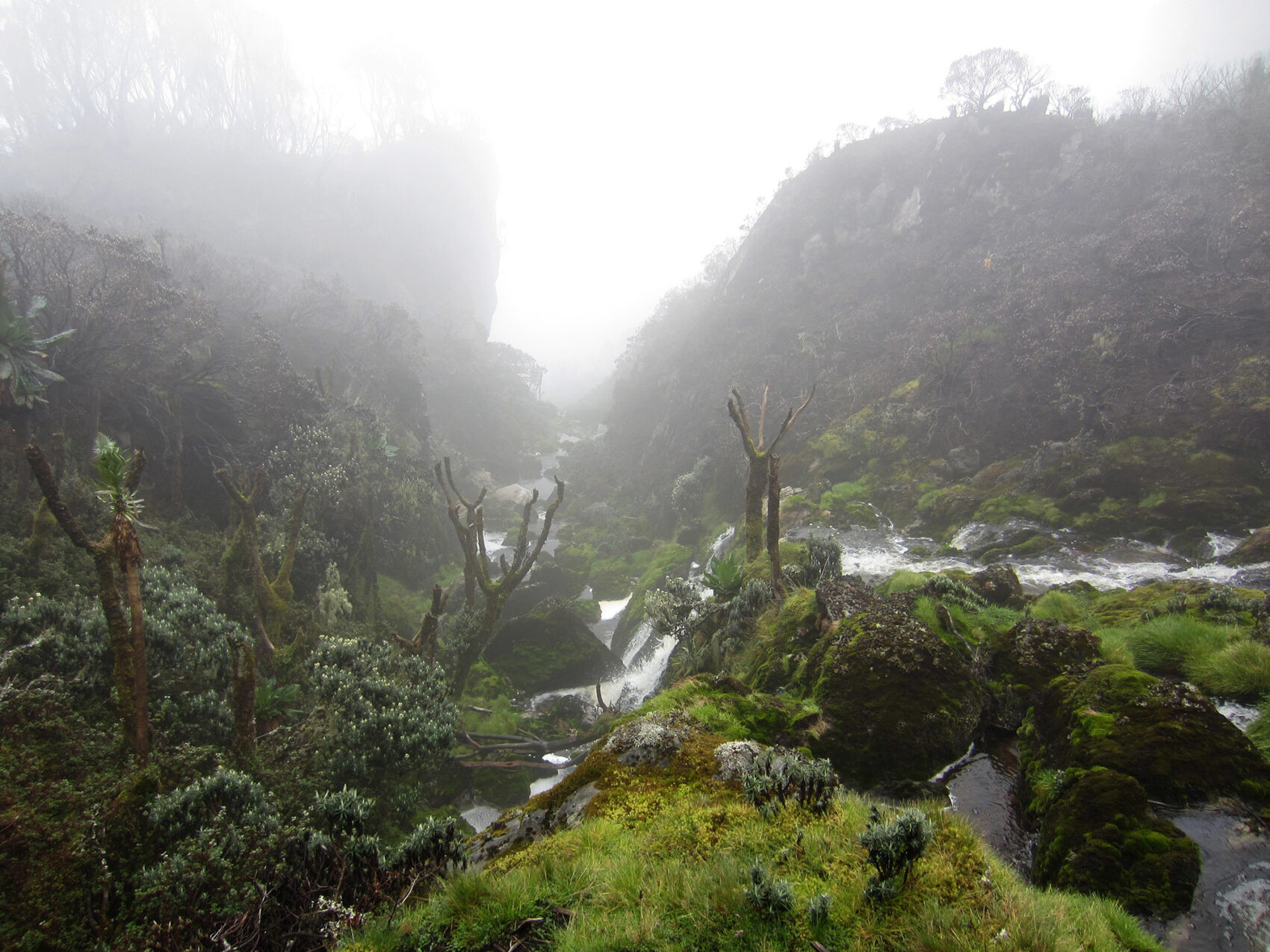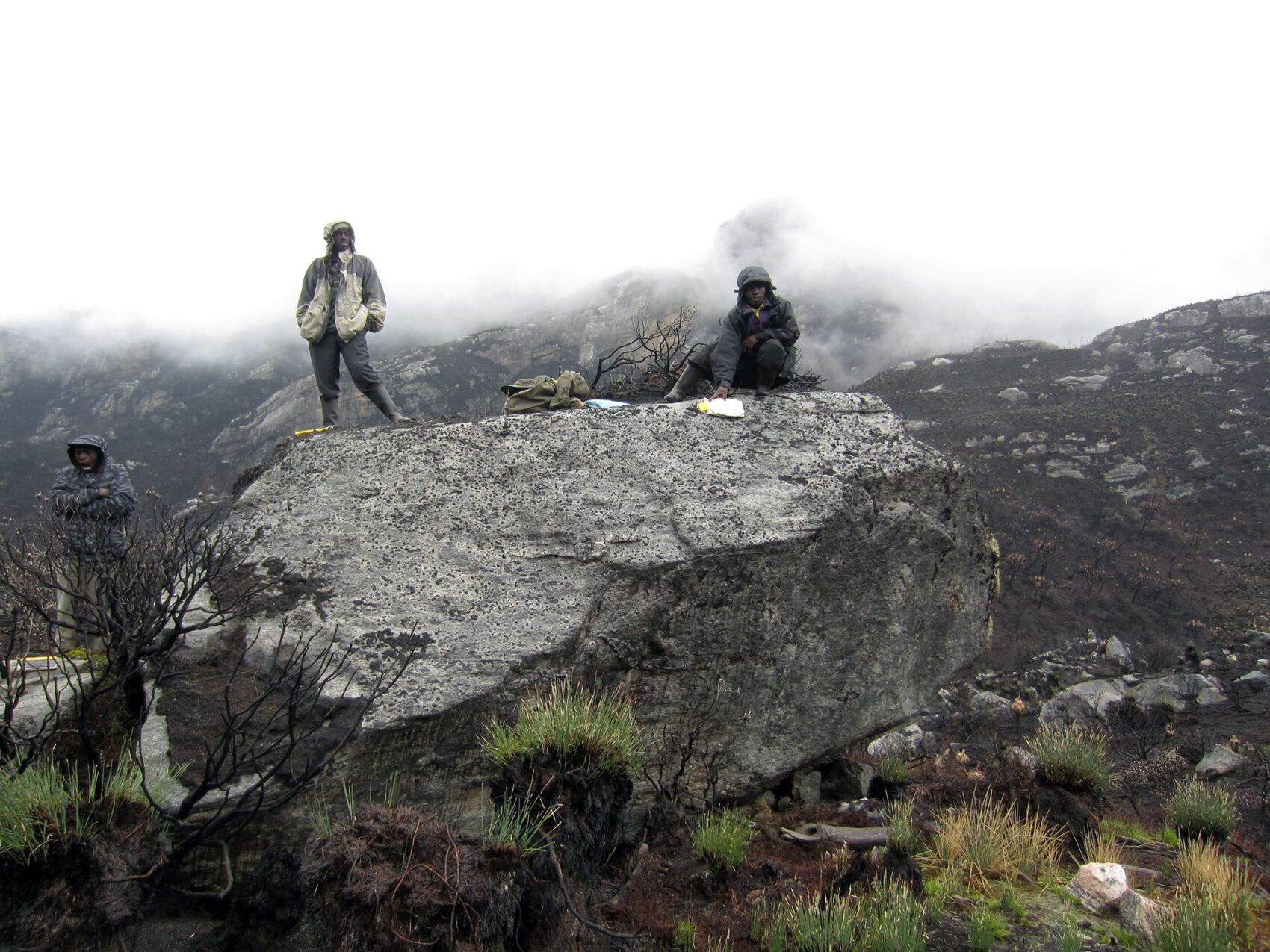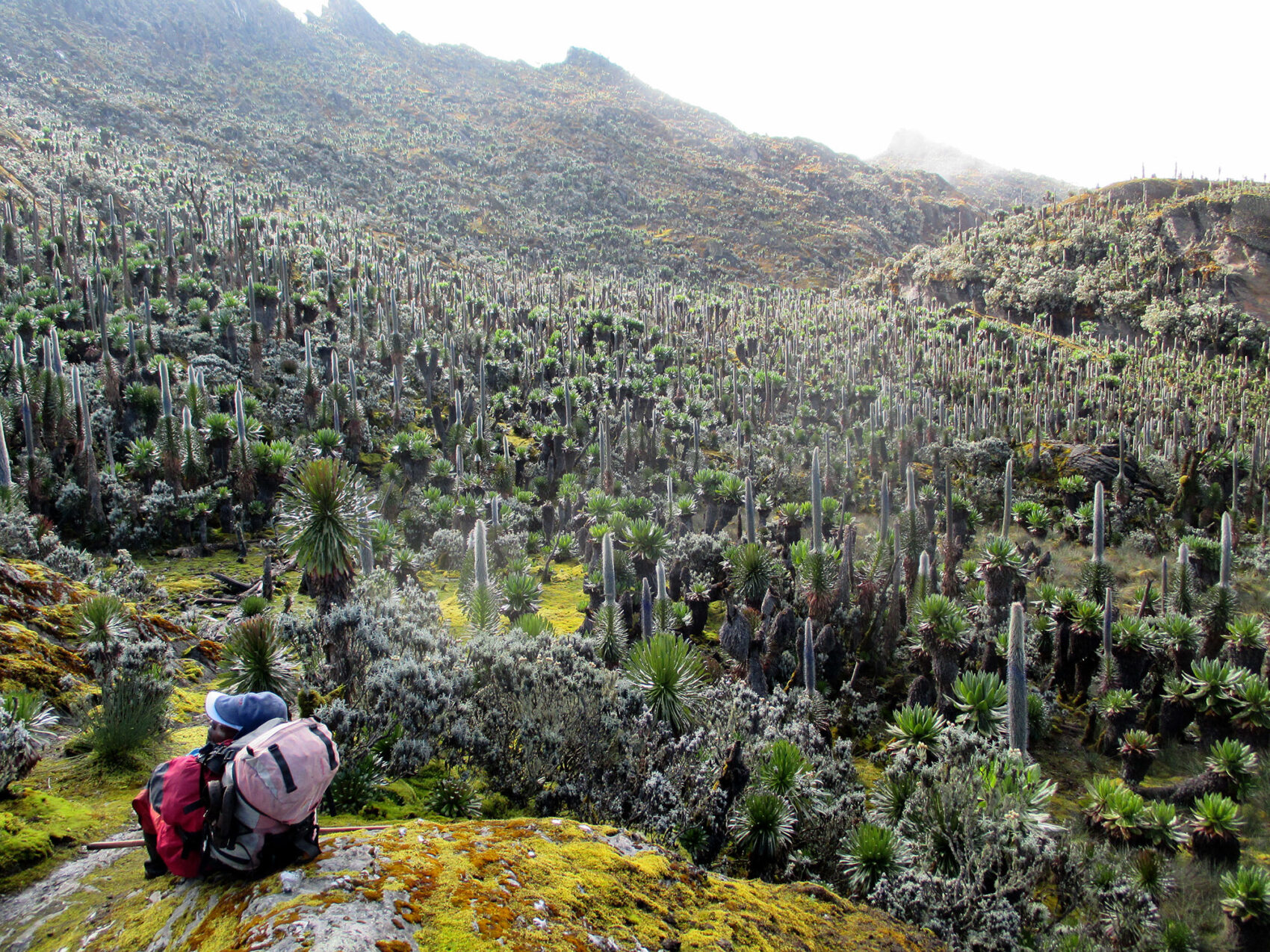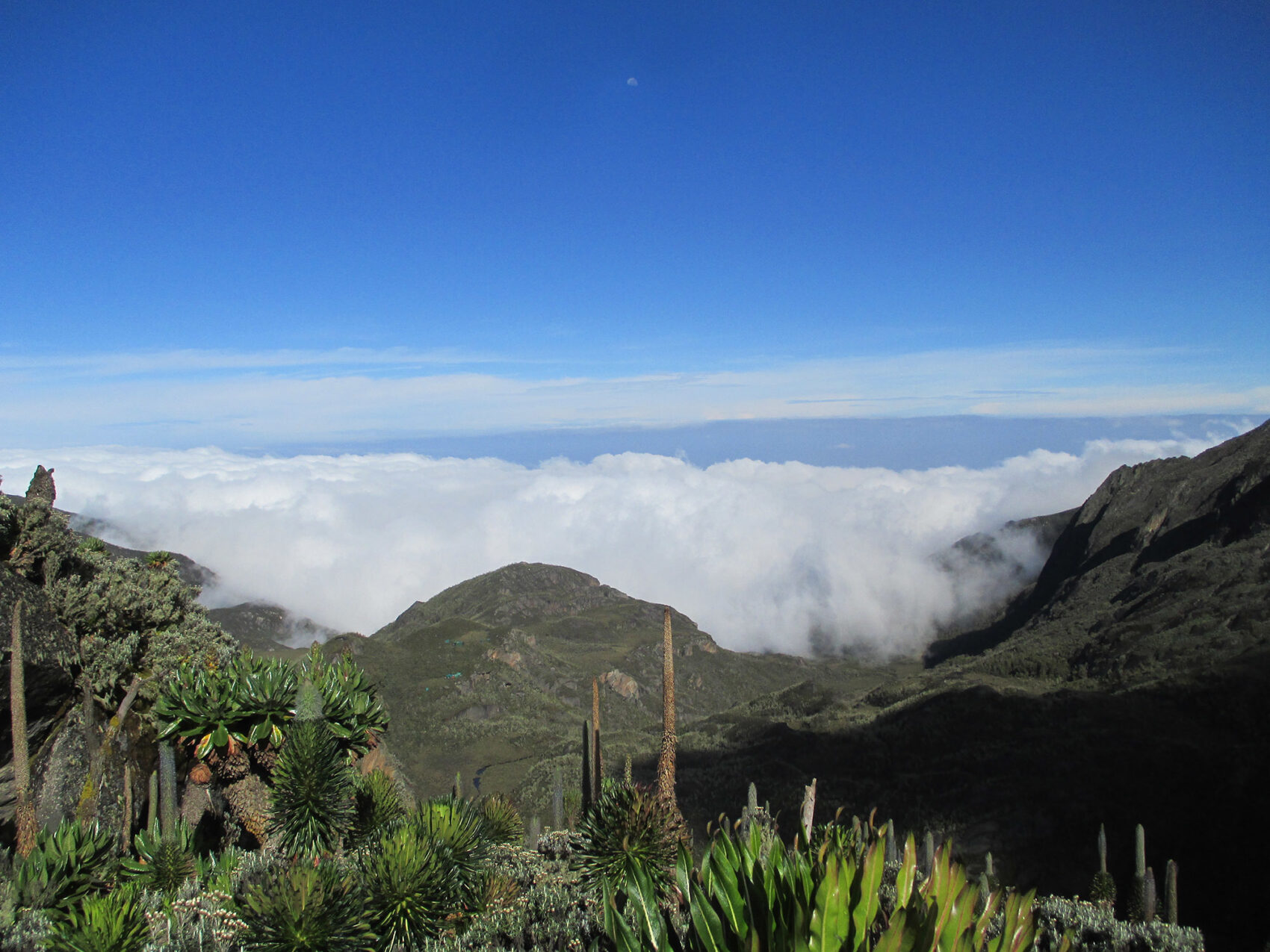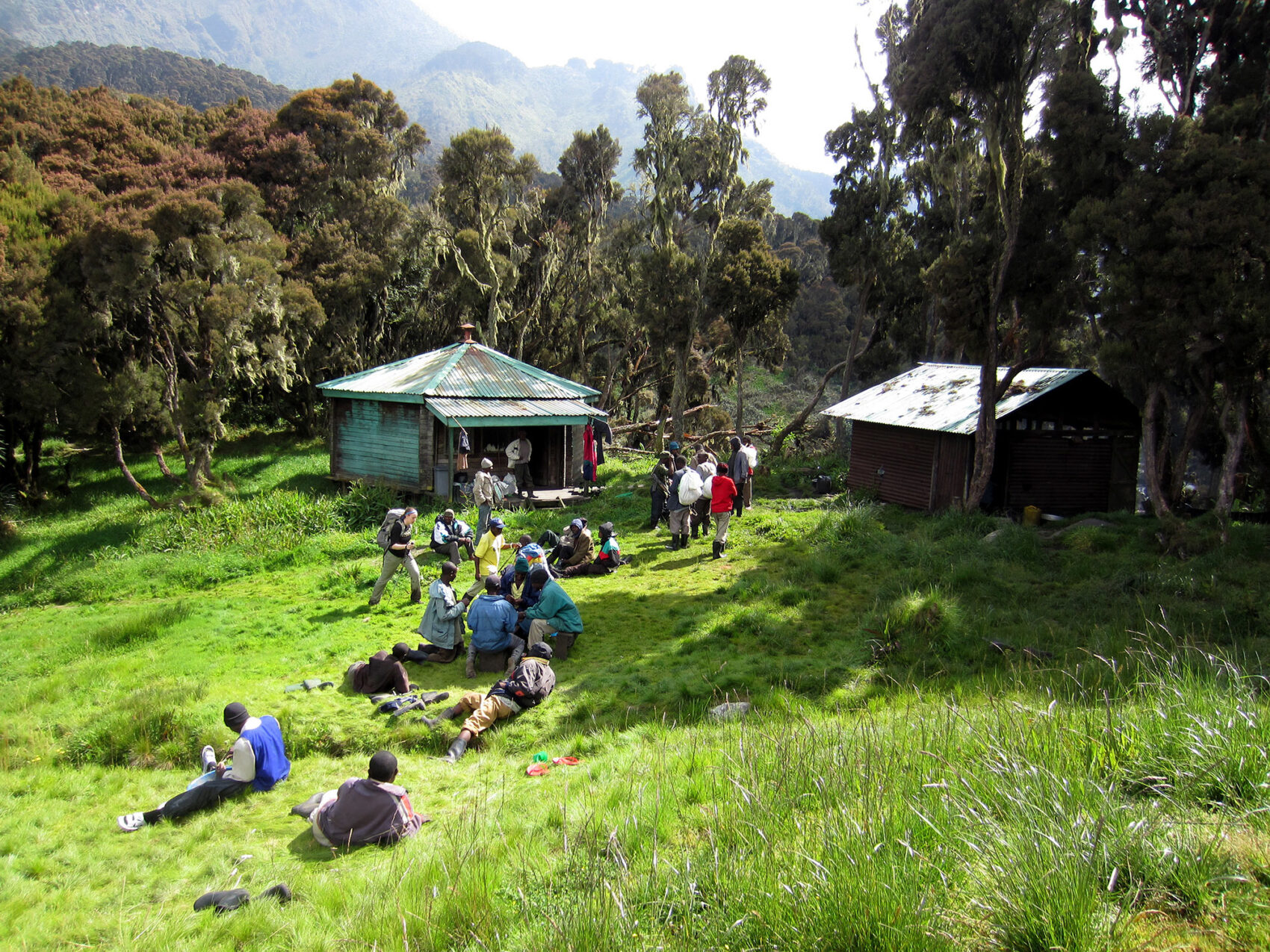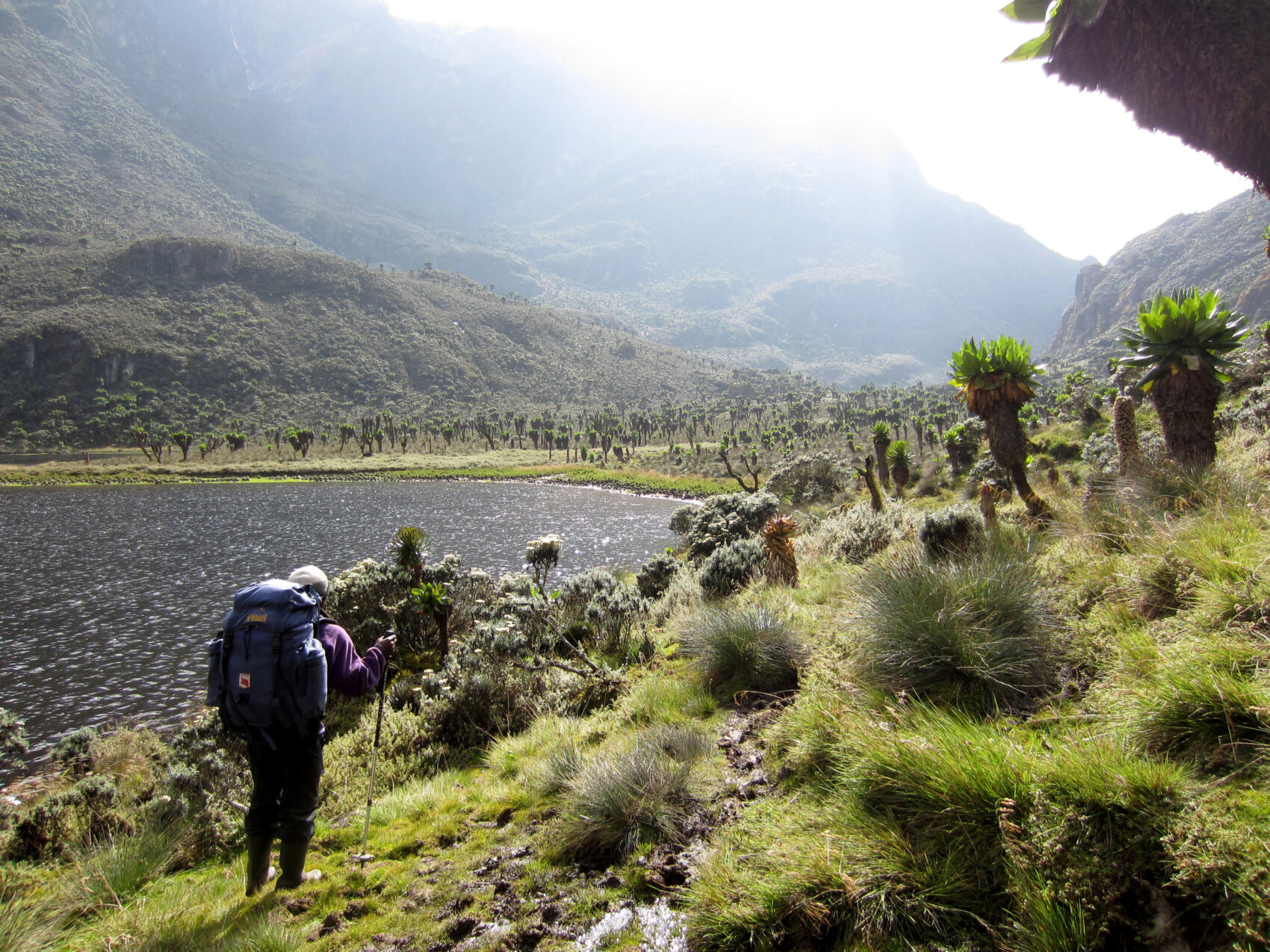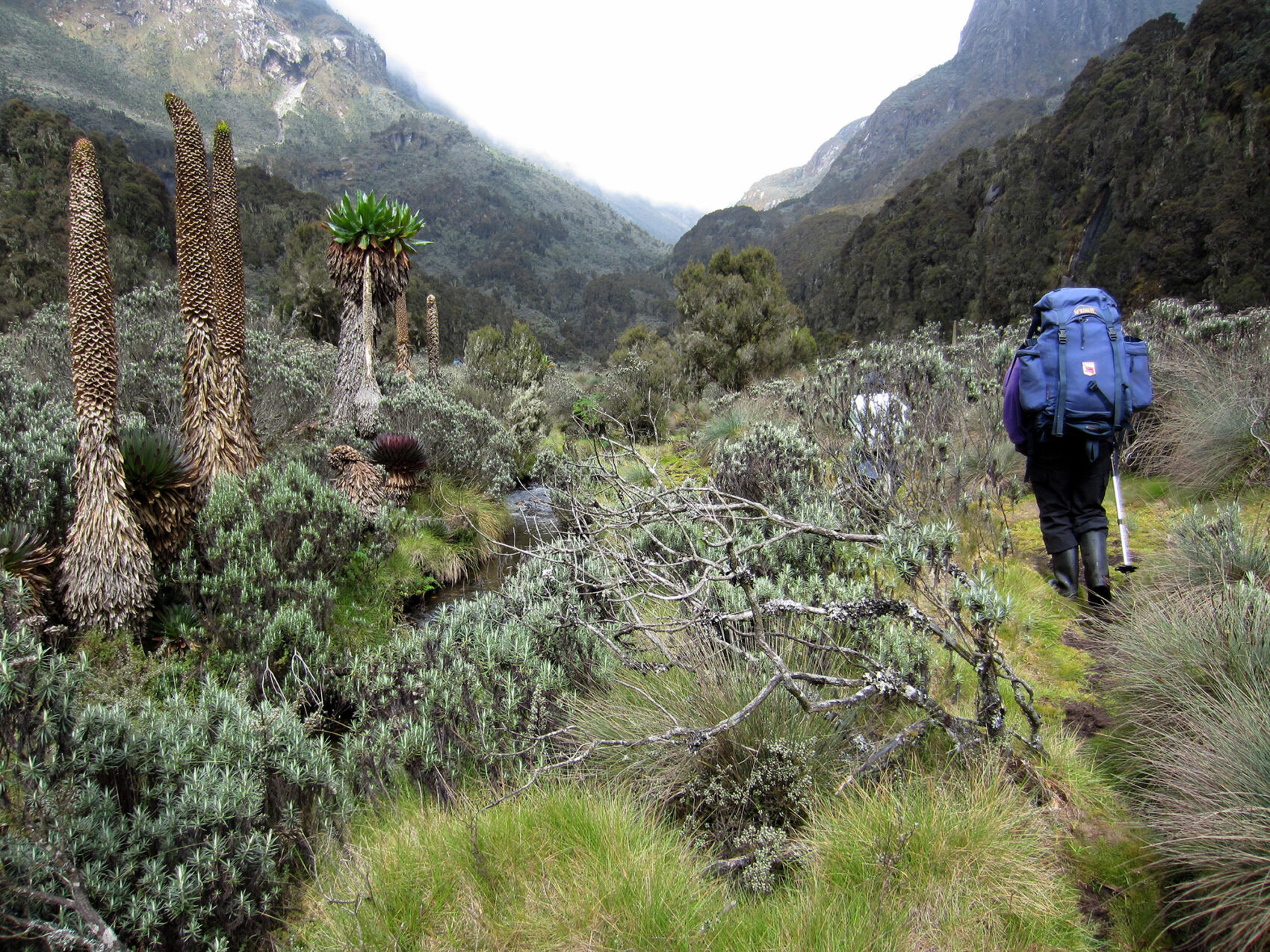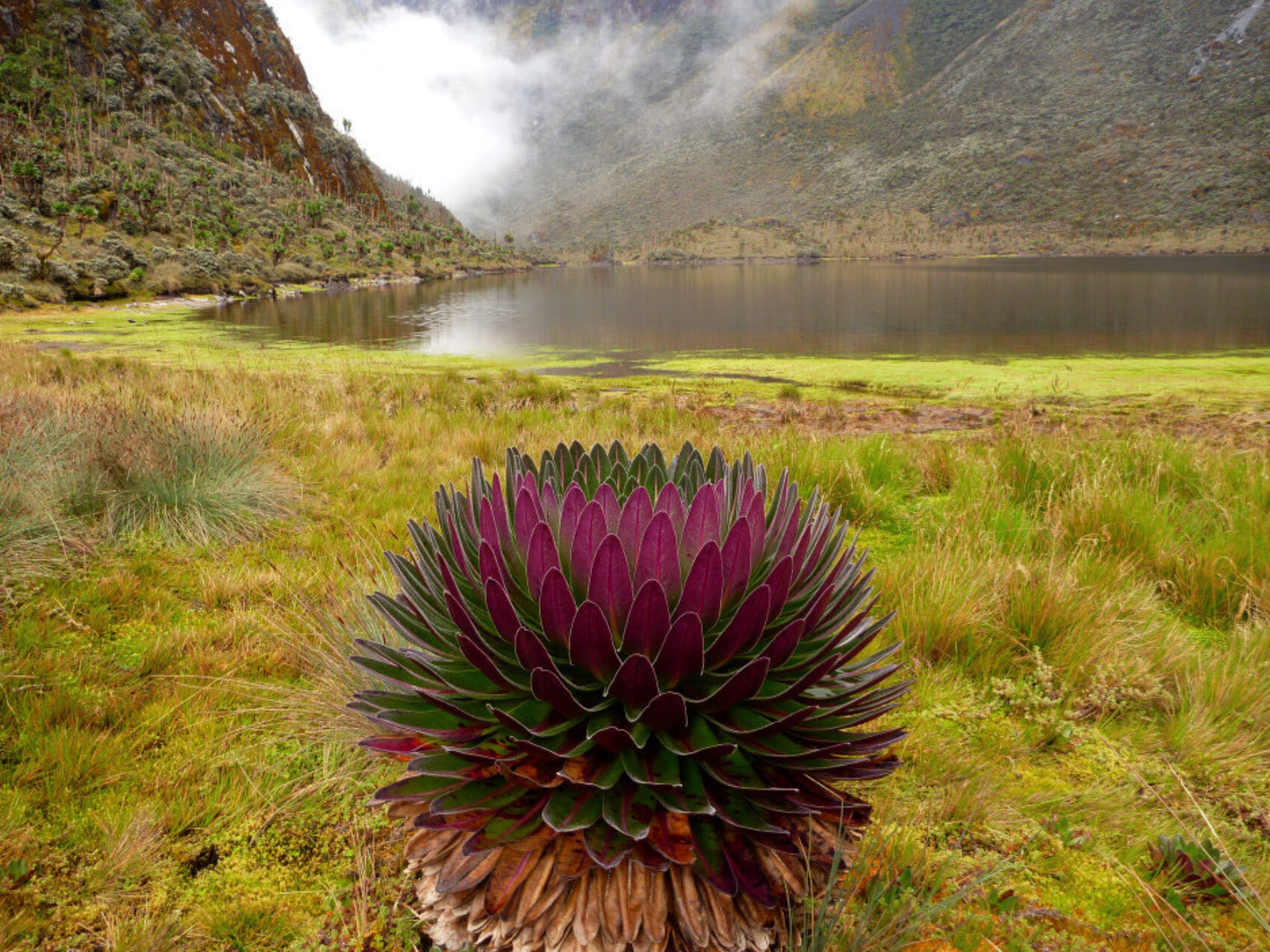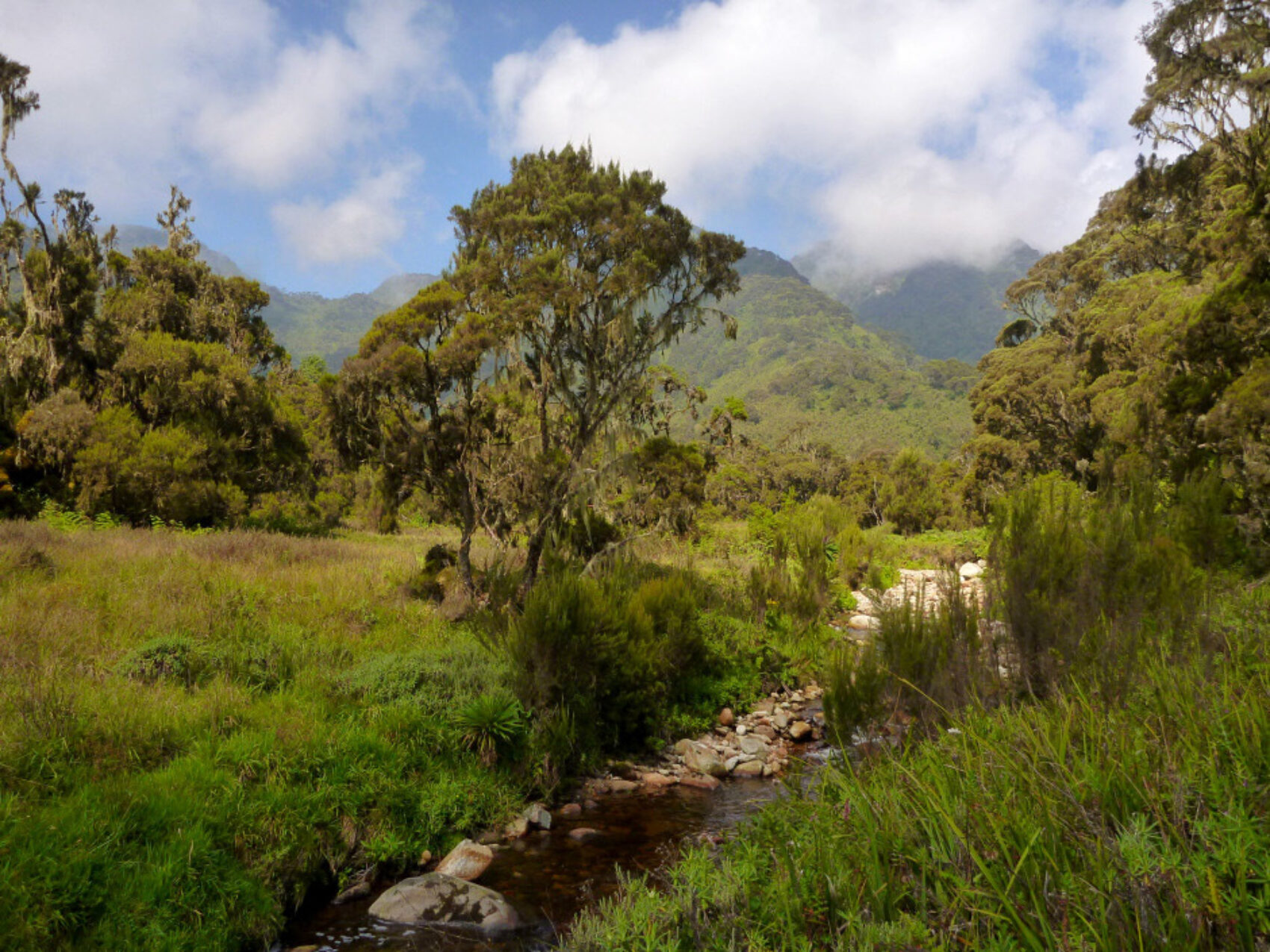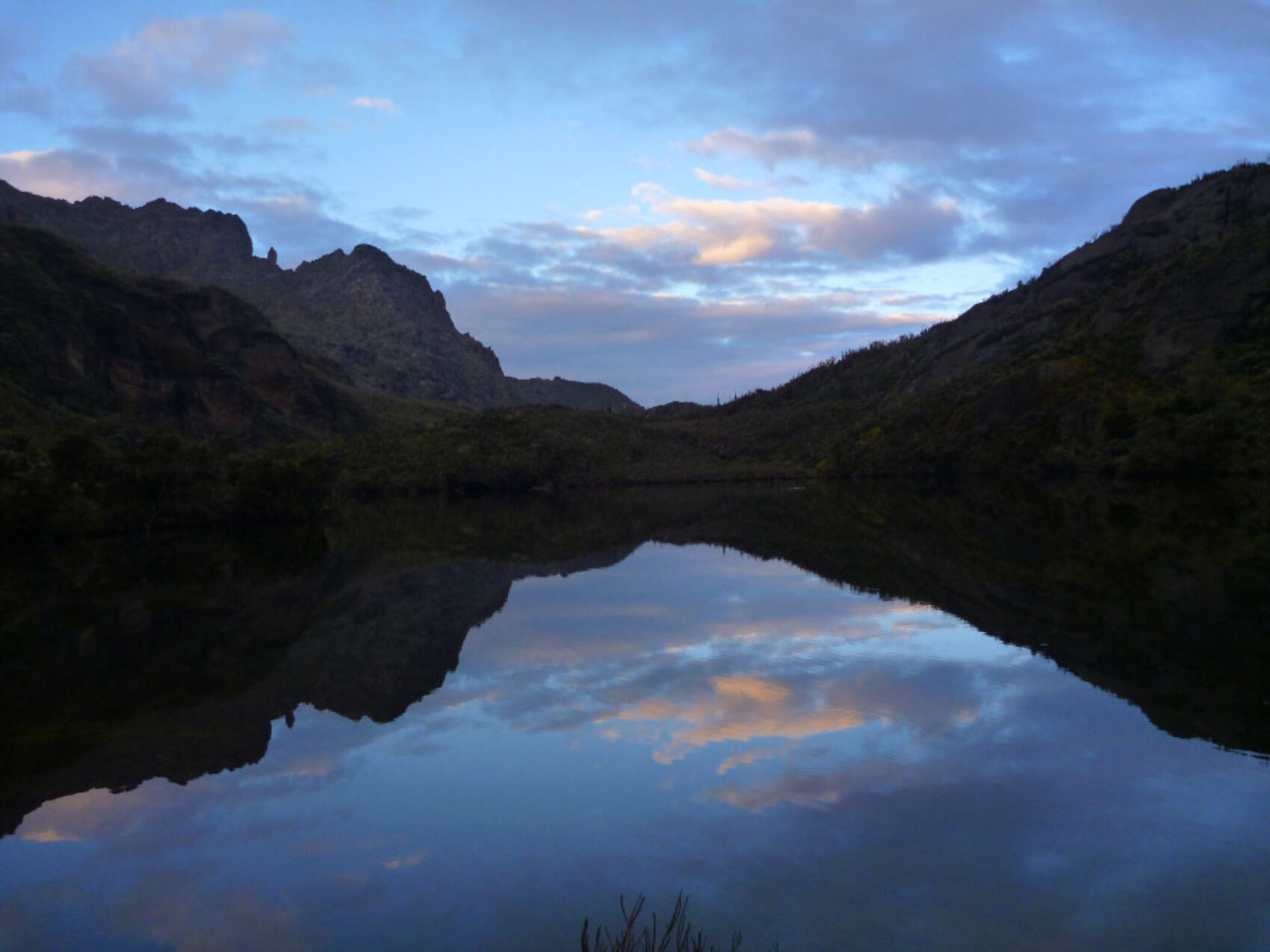High-Latitude Warming Initiated the Onset of the Last Deglaciation in the Tropics
We started working in the Rwenzori Mountains of Uganda because we wanted to understand the role of the tropics in Earth’s climate. The tropics are the “heat engine” of the planet. They receive large amounts of solar radiation and the resulting heat and moisture is transferred toward the poles. The tropics play a large role in regulating Earth’s climate, but we don’t yet know a lot about how they influence climate change.
We are looking to the past to see how the tropics have changed in relation to global climate changes. There are very few records of tropical temperatures in the past and we wanted to develop more of these. We went to tropical Africa, specifically to the Rwenzori, because there are glaciers there today that were larger in the past. We are using these past glacier extents to infer past temperature changes.
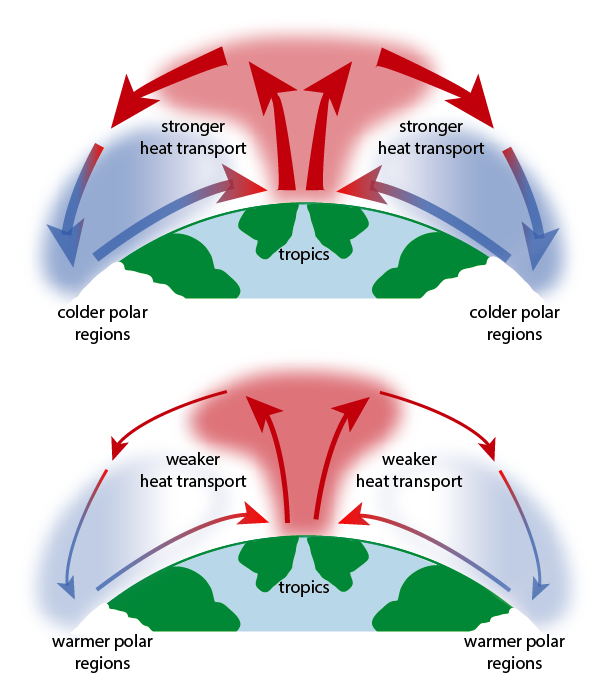
A number of people from Dartmouth have participated in the Rwenzori research, including postdoctoral fellow Alice Doughty, graduate students Margaret Baber and Margaret Jackson, and undergraduate students David Cavagnaro and Laura Hutchinson. We collaborate with a team of researchers led by James Russell at Brown University and Bob Nakileza at Makerere University in Uganda.
Our first expedition to the Rwenzori was in 2012. We’ve returned to the region four other times (in 2015, 2016, 2018, and 2019). It’s always an incredible and a challenging experience. The Ugandan culture is new and different. Trekking in the Rwenzori Mountains is physically and mentally challenging because of the steep trails, cold and rainy weather, and remote location. We always work with a team of guides, porters and a cook who are incredibly supportive. We live and work together for the two-three week-long expeditions, and we get to know each other well. One fun thing we do in the evenings is teach each other to play both American and Ugandan card games.
—Meredith A. Kelly
Comer Fellow, Associate Professor, Department of Earth Sciences, Dartmouth College




